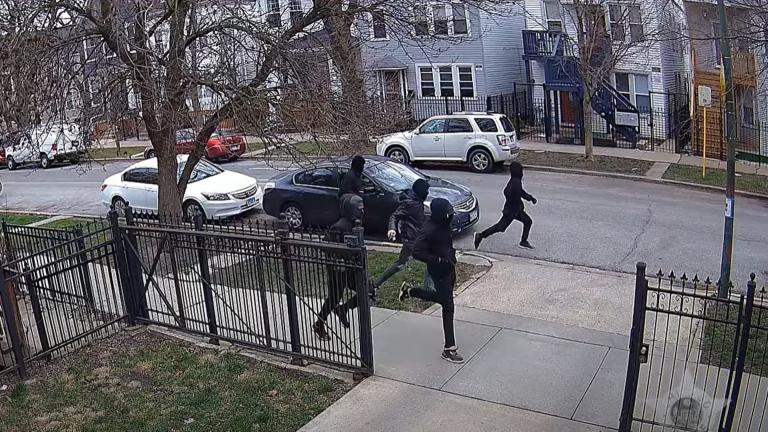Though the Chicago Police Department has missed a significant number of deadlines in the nearly two years it has spent under a federal consent decree, CPD leaders believe they are beginning to make real progress toward compliance, according to a new report.
In a status report filed Sunday night, the CPD said it “doubled down on its efforts to accelerate compliance” during its latest reporting period, expanding community engagement, launching new officer training efforts and working to reform the department’s internal culture.
“I don’t think you can be a police leader in today’s policing landscape and not be a champion of reform,” police Superintendent David Brown said during a conference call with reporters. “And so it’s been struck upon me to promote people to our leadership team that believe are committed to reform, and to have those tough conversations with people who I think are not, and unless they can course correct, replace them with somebody who is serious about reform.”
The new report — the department’s third since the consent decree took effect in March 2019 — covers the CPD’s reform efforts from March 1, 2020 through the end of the year. While it details changes made throughout 2020, it remains up to the Independent Monitoring Team, headed by former federal prosecutor Maggie Hickey, to determine the CPD’s compliance rate.
In its previous reporting period, that team found the CPD missed 70% of its deadlines. But the department said this time around it submitted more documents — more than 8,100 in total — to the monitoring team than in its previous two status reports combined.
Officials say that’s due in part to playing catch up on those missed deadlines, but add that it also speaks to the accelerated rate of reform within the department.
“I think we did get some really quality submissions this period,” said Robert Boik, executive director of the CPD’s Office of Constitutional Policing and Reform. “But you know looking at it and being reflective on the process, we have work to do but that’s what a consent decree is all about.”
But critics call the report a public relations effort and say the increase in documents submitted to the monitor is partly the result of the department’s conduct during widespread protests last summer in the wake of the police killing of George Floyd.
“I think it’s critically important to note that over half of those documents were documents that the department had to produce as a result of the CPD’s violent response to protesters this summer,” said Northwestern University professor Sheila Bedi, who has been part of the consent decree negotiations. “People were out in the street in support of the movement for Black lives, the police department responded with incredibly unlawful retaliatory violence.”
Nusrat Choudhury, legal director at the American Civil Liberties Union of Illinois, which is also involved in consent decree litigation, says the department’s community engagement needs to be more meaningful.
“It’s important not to confuse activity with accomplishment,” Choudhury said. “I think what we’re seeing here is a lack of real engagement with the very community groups that represent the most directly impacted people in the city of Chicago, people from Black and Brown communities who live and have lived police violence for years and decades.”
Boik agreed that community engagement needs to be improved.
“I don’t think CPD will get out of the consent decree until we can figure out meaningful ways to engage the community,” Boik said.
Brown has put an emphasis on consent decree compliance since his appointment as superintendent last spring. The latest reporting period took place during a tumultuous year which saw a global pandemic, unrest and widespread calls for police reform in Chicago and beyond following Floyd’s death.
In that time, the CPD said it has added public data dashboards tracking service calls, began a pilot program to better support officers and started an independent assessment of the promotions process for sergeants and lieutenants.
It also added a new department-wide anti-retaliation policy, and hired the first-ever language access coordinator and Americans with Disabilities Act liaison, as mandated under the decree.
But regardless of what the department says, Hickey and the monitoring team will determine if the CPD is meeting the consent decree’s requirements. To date, Brown and Boik have not yet seen a draft copy of the team’s report, which should be released soon.
“It’s not a self-graded test,” Brown said, when asked about department compliance, “so we’ll want to defer to the monitor and not anticipate that.”
Note: This story was originally published Sunday, Feb. 7, 2021. It has been updated to include our “Chicago Tonight” discussion.
Contact Matt Masterson: @ByMattMasterson | [email protected] | (773) 509-5431








